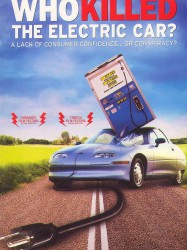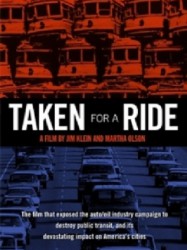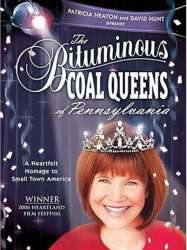Mountaintop Removal est un film de genre Documentaire
Mountaintop Removal (2007)

Si vous aimez ce film, faites-le savoir !
- Infos
- Casting
- Infos techniques
- Photos
- Vidéos
- Passages TV
- Citations
- Personnages
- Musique
- Récompenses
Genres Documentaire
Themes L'environnement, Documentaire sur le monde des affaires, Documentaire sur l'environnement, Documentaire sur les technologies
Note80%










Mountaintop Removal is a 2007 documentary film directed by Michael O'Connell. The film explores how mountaintop removal mining in West Virginia has affected local communities. Filmed over a two-year period, Mountain Top Removal features community advocates, such as Ed Wiley, Larry Gibson, Julia Bonds, Maria Gunnoe, and Mountain Justice Summer volunteers, in their efforts to oppose the destruction of Southern Appalachia's natural landscape. The film includes commentary from Jeff Goodell, author of Big Coal: The Dirty Secret Behind America's Energy Future, geologists Dr. William Schlesinger and Dr. Peter Taft, and also Bill Raney, President of the West Virginia Coal Association. The film won the Reel Current Award (presented by Al Gore) at the 2008 Nashville Film Festival. Mountaintop Removal also received a Jury award at the 2008 Wild and Scenic Film Festival, Audience award at the 2008 Woods Hole Film Festival and was screened at The Lincoln Center on Earth Day April 22, 2008. The film is currently being distributed nationwide on PBS through NETA. The film's soundtrack includes music by Jim Lauderdale, Donna the Buffalo, John Specker and Sarah Hawker.
Commentaires
Postez un commentaire :
Suggestions de films similaires à Mountaintop Removal
Il y a 8965 ayant les mêmes genres cinématographiques, 1580 films qui ont les mêmes thèmes (dont 12 films qui ont les mêmes 4 thèmes que Mountaintop Removal), pour avoir au final 70 suggestions de films similaires.Si vous avez aimé Mountaintop Removal, vous aimerez sûrement les films similaires suivants :
 , 1h32
, 1h32Origine Etats-Unis
Genres Documentaire
Thèmes L'environnement, Transport, Automobile, Documentaire sur le monde des affaires, Documentaire sur l'environnement, Documentaire sur les technologies, Road movie
Acteurs Tom Hanks, Martin Sheen, Mel Gibson, Ed Begley Jr., Phyllis Diller
Note75%





Au début des années 2000, plusieurs modèles de voitures électriques étaient en circulation en Californie, dont l'EV1, produite par General Motors et mise en location à long terme, puis retirée du marché en 2006. Ce documentaire retrace la mort prématurée de ce véhicule et enquête sur l'importance des lobbies du pétrole dans l'état de Californie.

Taken for a Ride (1996)
, 55minutesOrigine Etats-Unis
Genres Documentaire
Thèmes L'environnement, Transport, Automobile, Le train, Documentaire sur le monde des affaires, Documentaire sur l'environnement, Documentaire sur les technologies, Road movie
Note78%





Taken for a Ride begins with interviews on the inefficiencies and congestion on Los Angeles' highways. Next, the film displays a variety of archival footage on streetcar systems around the United States, demonstrating that streetcars were a widespread and efficient means of transportation. The film continues into a description of the General Motors streetcar conspiracy, starting with a history of National City Lines and Pacific City Lines and General Motors' investment in both companies. The film builds the argument that streetcar systems purchased by these companies were deliberately sabotaged through service reductions and fare increases, then replaced with profitable, less convenient, bus systems. Next, the film makes a connection between this conspiracy and the construction of the Interstate Highway System and the suburbanization of America in the face of the Highway revolts in the 1960s and 1970s. The film ends with footage of the reduction of Philadelphia's trolleybus system at the time of filming.
 , 1h29
, 1h29Réalisé par David Hunt
Origine Etats-Unis
Genres Documentaire
Thèmes L'environnement, Documentaire sur le monde des affaires, Documentaire sur l'environnement, Documentaire sur les technologies
Acteurs Fabian Forte
Note69%





 , 40minutes
, 40minutesOrigine Etats-Unis
Genres Documentaire
Thèmes L'environnement, Documentaire sur le monde des affaires, Documentaire sur l'environnement, Documentaire historique, Documentaire sur les technologies, Film catastrophe
Note57%






Cultures en transition (2012)
, 1h5Origine France
Genres Documentaire
Thèmes L'environnement, La mondialisation, Le monde du travail, Documentaire sur le monde des affaires, Documentaire sur l'environnement, Documentaire sur les technologies, Documentaire sur le monde du travail, Film catastrophe
Note75%





Le film met en garde contre les dangers contre les dépendances en agriculture d'intrants chimiques et de ressources énergétiques. Le film décrit des alternatives agricoles en France, le mouvement des Villes en transition et le changement de paradigme agricole à Cuba comme des exemples préfigurateurs d'un nouveau mode de production agricole, à petite échelle et décentralisé.

The Return of Navajo Boy (2000)
, 52minutesOrigine Etats-Unis
Genres Documentaire
Thèmes L'environnement, Documentaire sur le monde des affaires, Documentaire sur le droit, Documentaire sur l'environnement, Documentaire sur le nucléaire, Documentaire sur une personnalité, Documentaire sur les technologies
Note26%






The Last Mountain (2011)
, 1h35Origine Etats-Unis
Genres Documentaire
Thèmes L'environnement, Documentaire sur le monde des affaires, Documentaire sur l'environnement, Documentaire historique, Documentaire sur la politique, Documentaire sur les technologies, Politique
Note76%






Sludge (2005)
Origine Etats-Unis
Genres Documentaire
Thèmes L'environnement, Documentaire sur le monde des affaires, Documentaire sur l'environnement, Documentaire historique, Documentaire sur les technologies, Film catastrophe
 , 1h29
, 1h29Origine Etats-Unis
Genres Documentaire
Thèmes L'environnement, Documentaire sur le monde des affaires, Documentaire sur l'environnement, Documentaire sur les technologies
Note73%






Origine Etats-Unis
Genres Documentaire
Thèmes L'environnement, Documentaire sur le monde des affaires, Documentaire sur l'environnement, Documentaire sur les technologies
Note68%





 Connexion
Connexion